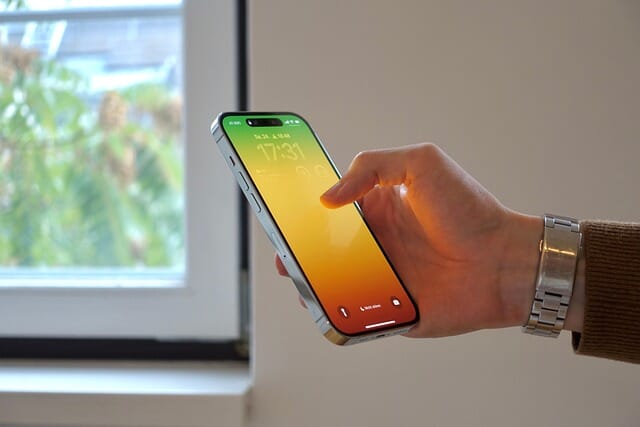Understanding Caller ID: When Should You Trust It?
Introduction
In this digital age, our smartphones have become not just communication devices but gateways to a world of information. Yet, amidst the convenience of receiving calls from anyone at any time, there's one persistent question that lingers in the minds of many: Should you trust your Caller ID? With the rise of spam calls and scams, understanding Caller ID has never been more crucial.
This article delves deep into the intricacies of Caller ID and provides insight on how to identify unknown callers, check missed call numbers, perform a spam call lookup, and utilize unwanted call checkers effectively. Join us as we explore whether you should really trust Online identity verification that name or number flashing on your screen.
Understanding Caller ID: When Should You Trust It?
Caller ID is a feature that lets you see the identity of an incoming call before answering it. While this feature can be incredibly useful for screening calls and avoiding unsolicited interruptions, it’s not foolproof. Many scammers use technology to spoof their numbers—making them appear as if they are calling from reputable businesses or even local numbers.
So when should you trust your Caller ID? The short answer is: Use caution. If you're receiving a call from an unknown number claiming to be your bank or a government agency requesting personal information, it's wise to hang up and verify through official channels instead.
How Does Caller ID Work?
To understand when to trust Caller ID, it’s essential first to grasp how it functions.
- The Basics: When someone makes a phone call, their carrier sends data packets containing both their phone number and name (if available) to your carrier.
- Display: This data appears on your phone screen as the incoming call comes through.
- Spoofing: However, scammers can manipulate this information using various methods to display a different number or name than their own.
The Importance of Context in Caller ID
Not every unknown caller is out to get you; however, context matters. Here are some scenarios:
Identifying Unknown Callers
When it comes down to identifying unknown callers, there are several strategies you can employ:
Using Reverse Phone Lookup Services
Services like Whitepages or Truecaller allow you to input unknown numbers and retrieve information about them. This can help determine if they’re associated with spam or legitimate businesses.
Utilizing Apps for Identification
There are various apps designed specifically for identifying unknown callers. They can automatically flag known spam numbers and even provide user-generated feedback about suspicious calls.
Community Reporting Systems
Platforms such as 800notes allow users to report experiences with specific numbers. If you're getting repeated calls from an unrecognized number, checking these forums might provide insight into whether others have had similar experiences.
Check Missed Call Number
Have you ever stared at your screen in confusion after missing a call? You’re not alone!
What To Do After Missing A Call?
The Dangers of Ignoring Unknown Calls
Ignoring unknown calls may feel safe at first glance; however:
- You could miss important communications from work or family.
- Some robocalls may loop back if not answered repeatedly.
Spam Call Lookup Techniques
Spam calls have become an unfortunate reality for many individuals today. Here’s how you can efficiently perform spam call lookups:
Online Databases for Spam Reports
Websites like Nomorobo and Robokiller compile databases of known spam callers that can be beneficial when assessing an unfamiliar number.
Carrier-Specific Features for Spam Detection
Many carriers now offer built-in features that alert users about potential spam calls based on crowdsourced data—these can often block unwanted culprits preemptively.
Utilizing Unwanted Call Checkers
If you're tired of those incessant sales pitches disrupting your day-to-day life:
Setting Up Call Blockers on Smartphones
Most smartphones come equipped with features allowing users to block specific numbers or enable settings that filter suspected spam calls automatically.
Third-party Apps for Enhanced Protection
Apps like Mr.Number allow users not only to block specific numbers but also create custom filters based on area codes or prefixes commonly used by telemarketers.
Understanding Spoofing and Its Implications
The art of spoofing—where scammers manipulate caller IDs—is particularly concerning:
What Is Spoofing?
Spoofing is when Phone number location someone alters the information transmitted to your caller ID display so that it appears as though another person is calling you—often leading unsuspecting victims into traps!
Why Is Spoofing Dangerous?
- It erodes trust in genuine communications.
- It allows fraudsters easy access to sensitive personal details.
FAQs About Caller ID
1. Can I always trust my Caller ID?
No! Scammers often spoof their numbers making them appear trustworthy; always verify before sharing personal information.
2. How can I identify an unknown caller?
You can use reverse phone lookup services or applications designed for caller identification.
3. What should I do if I receive multiple spam calls?
Consider blocking those specific numbers or utilizing third-party apps that filter them out automatically.
4. Are there legal consequences for spoofing?
Yes! Spoofing is illegal under federal law in many countries due to its fraudulent nature; offenders may face significant fines or jail time.
5. How do I report unwanted calls?
You can report unwanted calls through websites like donotcall.gov in the U.S., as well as using community forums dedicated to sharing experiences with specific numbers.
6. Is there technology that prevents spoofing?
While technology exists aimed at mitigating spoofing risks—such as STIR/SHAKEN protocols—the best defense remains vigilance by end-users who educate themselves about these threats.
Conclusion
Understanding Caller ID has become essential in today’s fast-paced world filled with distractions and potential threats lurking behind every ring! By following guidelines laid out in this article—from identifying unknown Call verification callers effectively through various tools available—to recognizing when not to trust those friendly names popping up on our screens—we empower ourselves against malicious entities looking for easy prey!
So next time your phone buzzes with an unfamiliar number flashing across its vibrant display—take a moment before diving headfirst into conversation mode! Question what lies behind that contact info; be proactive rather than reactive! After all, knowledge is power—and when it comes down protecting ourselves from unwanted intrusions—it couldn't hold truer!
With these insights at hand regarding understanding Caller IDs better than ever before—you're now equipped with all necessary strategies ensuring smoother sailing through incoming communications while dodging those pesky spammers along the way!

